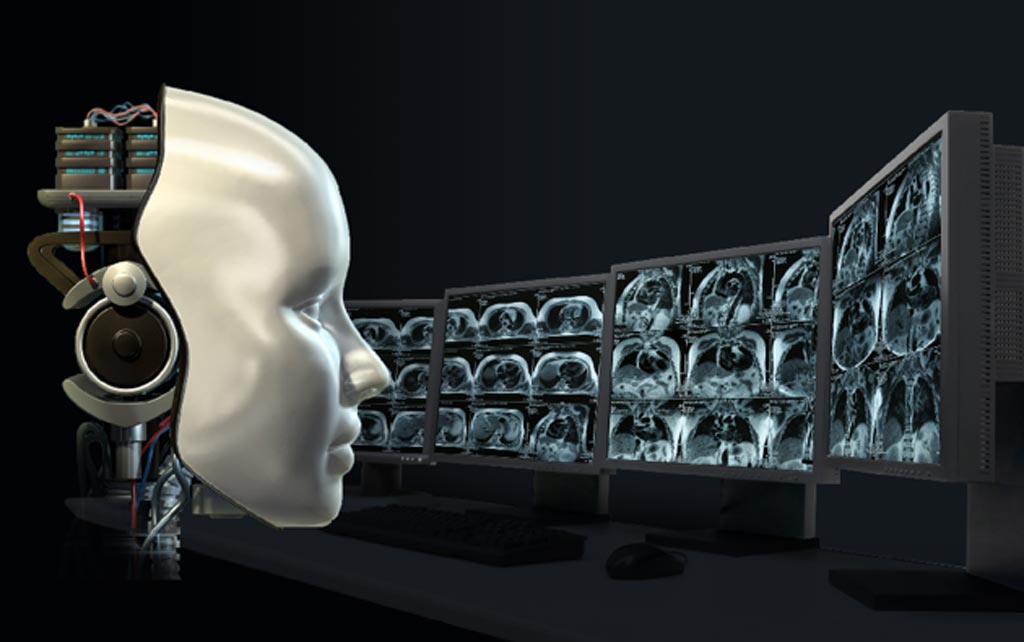Automated AI Algorithm Uses Routine Imaging to Predict Cardiovascular Risk
By MedImaging International staff writers
Posted on 02 Feb 2021
An artificial intelligence (AI) deep learning system can automatically measure coronary artery calcium from routine computed tomography (CT) scans and predict cardiovascular events like heart attacks.Posted on 02 Feb 2021
Investigators from the Brigham and Women’s Hospital (Boston, MA, USA) and the Massachusetts General Hospital’s Cardiovascular Imaging Research Center (CIRC; Boston, MA, USA) teamed up to develop and evaluate the deep learning system that automatically measures coronary artery calcium from CT scans to help physicians and patients make more informed decisions about cardiovascular prevention. The team validated the system using data from more than 20,000 individuals with promising results.

Illustration
Coronary artery calcification - the buildup of calcified plaque in the walls of the heart’s arteries - is an important predictor of adverse cardiovascular events like heart attacks. Coronary calcium can be detected by CT scans, but quantifying the amount of plaque requires radiological expertise, time and specialized equipment. In practice, even though chest CT scans are fairly common, calcium score CTs are not. The new deep learning system automatically and accurately predicts cardiovascular events by scoring coronary calcium.
The team began by training the deep learning system on data from the Framingham Heart Study (FHS), a long-term asymptomatic community cohort study. Framingham participants received dedicated calcium scoring CT scans, which were manually scored by expert human readers and used to train the deep learning system. The deep learning system was then applied to three additional study cohorts, which included heavy smokers having lung cancer screening CT, patients with stable chest pain having cardiac CT, and patients with acute chest pain having cardiac CT. All told, the team validated the deep learning system in over 20,000 individuals. The automated calcium scores from the deep learning system highly correlated with the manual calcium scores from human experts. The automated scores also independently predicted who would go on to have a major adverse cardiovascular event like a heart attack.
“Coronary artery calcium information could be available for almost every patient who gets a chest CT scan, but it isn’t quantified simply because it takes too much time to do this for every patient,” said corresponding author Hugo Aerts, PhD, director of the Artificial Intelligence in Medicine (AIM) Program at the Brigham and Harvard Medical School. “We’ve developed an algorithm that can identify high-risk individuals in an automated manner.”
“This is an opportunity for us to get additional value from these chest CTs using AI,” said co-author Michael Lu, MD, MPH, director of artificial intelligence at MGH’s Cardiovascular Imaging Research Center. “The coronary artery calcium score can help patients and physicians make informed, personalized decisions about whether to take a statin. From a clinical perspective, our long-term goal is to implement this deep learning system in electronic health records, to automatically identify the patients at high risk.”
Related Links:
Brigham and Women’s Hospital
Massachusetts General Hospital














